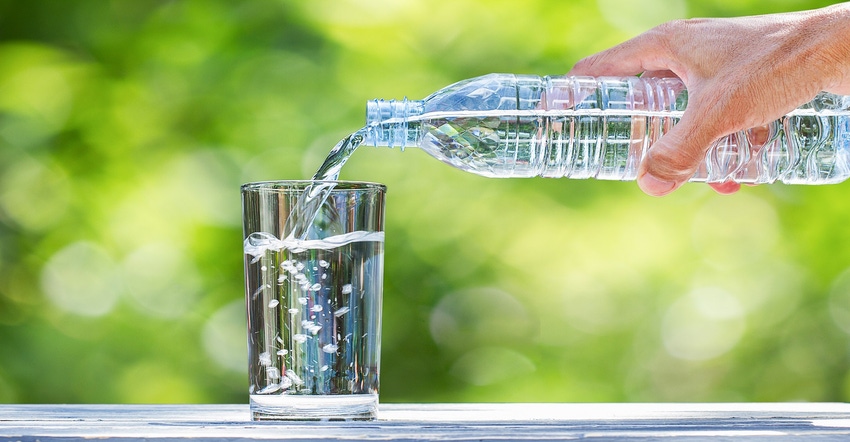Bottled water dubbed most popular beverage, despite slowed growth
Bottled water sales continue to set records, despite slowed volume growth in 2022, according to new figures from the Beverage Marketing Corporation (BMC).

Per BMC’s newly released data, bottled water volume sales grew to 15.9 billion gallons in 2022, up from 15.7 billion gallons in 2023. That marks growth of 1.1%, a notable decrease from 2021’s volume growth of 4.6%.
Despite sluggish volume sales, BMC’s data dubbed bottled water the most popular beverage in 2022, maintaining its edge over the soft drinks category for the seventh consecutive year. Bottled water per capita consumption reached 46.5 gallons in 2022, compared to 36 gallons of soft drinks per capita consumption, BMC reported.
Jill Culora, vice president of communications at the International Bottled Water Association (IBWA), further cited a 2022 national survey conducted online by The Harris Poll on behalf of IBWA that showed almost 9 in 10 Americans (88%) have a positive opinion of bottled water as a beverage choice. The majority of Americans (91%) said they think bottled water should be available wherever other drinks are sold.
“Consumers love bottled water because it’s healthy, safe, convenient and great tasting,” Culora said. “Bottled water also has zero calories, which makes it an excellent choice for those looking to reduce their daily calorie intake. For others, the lack of artificial ingredients and caffeine make bottled water an appealing beverage choice.”
The most popular bottled water type in 2022 was single-serve bottled water, which accounted for almost three-quarters (71%) of bottled water volume sales. The single-serve bottled water sector grew 1.4% in 2022 to reach 11.3 billion gallons, BMC reported.
Per IBWA’s data, consumers prefer bottled water packaged in plastic bottles. The data showed most bottled water drinkers have a packaging preference (88%). Of those, 78% prefer bottled water packaged in plastic bottles. Glass (14%), metal cans (4%) and paper cartons or box (4%) were preferred by some Americans.
PET plastic water bottles have come under fire in recent years by consumers who charge the packaging with negatively impacting the environment.
Culora labeled the claims “false information,��” and wagered that bottled water “sales and consumption continue to grow” despite negative media chatter.
BMC’s data underlines the steady support of bottled water. The data shows bottled water producers’ revenues jumped by nearly 12% in 2022, which, per BMC, was largely thanks to higher prices caused by record inflation that’s swept grocery stores and other retailers.
She went further to cite PET bottled water as wielding the smallest environmental impact compared to all packaged drinks.
“PET water bottles use less than half of the material weight of all other packaging types, including aluminum cans, paperboard cartons, glass and even PET soda bottles,” she explained. “Lower material usage means less impact from material extraction, manufacturing, and ultimately results in less material entering landfills or needing to be recycled.”
The data from BMC showed home and office delivery and self-service refill bottled water types, which account for roughly 10% and 6% of all bottled water volume sales, also saw volume growth in 2022.
Interestingly, sparkling water and imports, which have outperformed the overall bottled water market in recent years, saw declines in volume in 2022.
Rachel Adams joined Informa’s Health & Nutrition Network in 2013. Her career in the natural products industry started with a food and beverage focus before transitioning into her role as managing editor of Natural Products INSIDER, where she covered the dietary supplement industry. Adams left Informa Markets in 2019.
About the Author(s)
You May Also Like






